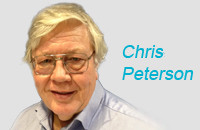Rising China follows the gold rule amid fading American Century
By Danny Quah (chinadaily.com.cn) Updated: 2015-09-28 11:25Time was, it did both power and legitimacy. But if the US now wields only the first - as Nye describes so convincingly - can it still draw on the goodwill of the seven billion people on earth that Lee Kuan Yew promised? Without conviction and clarity on the global public goods it delivers, is US soft power only ordinary power?
The idea is neither fanciful nor whimsical that leadership comes with doing good for those who are led. It is, after all, a principle of economics that under free-market capitalism the only need a society has for government is when government provides public goods.
Conversely, China can provide a new narrative to lead the world, one available to it without even needing to mention power. With the AIIB helping build infrastructure in energy, telecoms and transport throughout Asia, China can just say: "We're here to help." China has reached out with AIIB, the BRICS development bank and a host of other initiatives.
The AIIB's balance sheet, while substantial, pales compared with those of the International Monetary Fund and the World Bank; it is even smaller than the Asian Development Bank's. This is no China machine out to conquer the global economy through sheer power. This is building an inclusive international order, the same thing America had done. This narrative could well end up winning over the world's people who don't live along the transatlantic axis, and who never quite got to be part of the American century.
In contrast, many accounts of the American century now sound as if they rely more on America's power, and less on America's doing good in the world.
If we continue down this road and apply the Nye-Lee Kuan Yew criterion, China is going to win. What's at stake? That which Lee Kuan Yew promised: The talents and goodwill of the planet's seven billion people.
Danny Quah is professor of economics and international development, and director of the Saw Swee Hock Southeast Asia Centre at the London School of Economics and Political Science.
- China-US agreement helps world peace, security: experts
- China, US agree to cooperate on fighting corruption
- China-US climate commitments meaningful to the world: NDRC
- Xi's offers 6 propositions to strengthen China-US relations
- China, US seal deals on defense
- China-US partnerships important steps in cloud strategy











